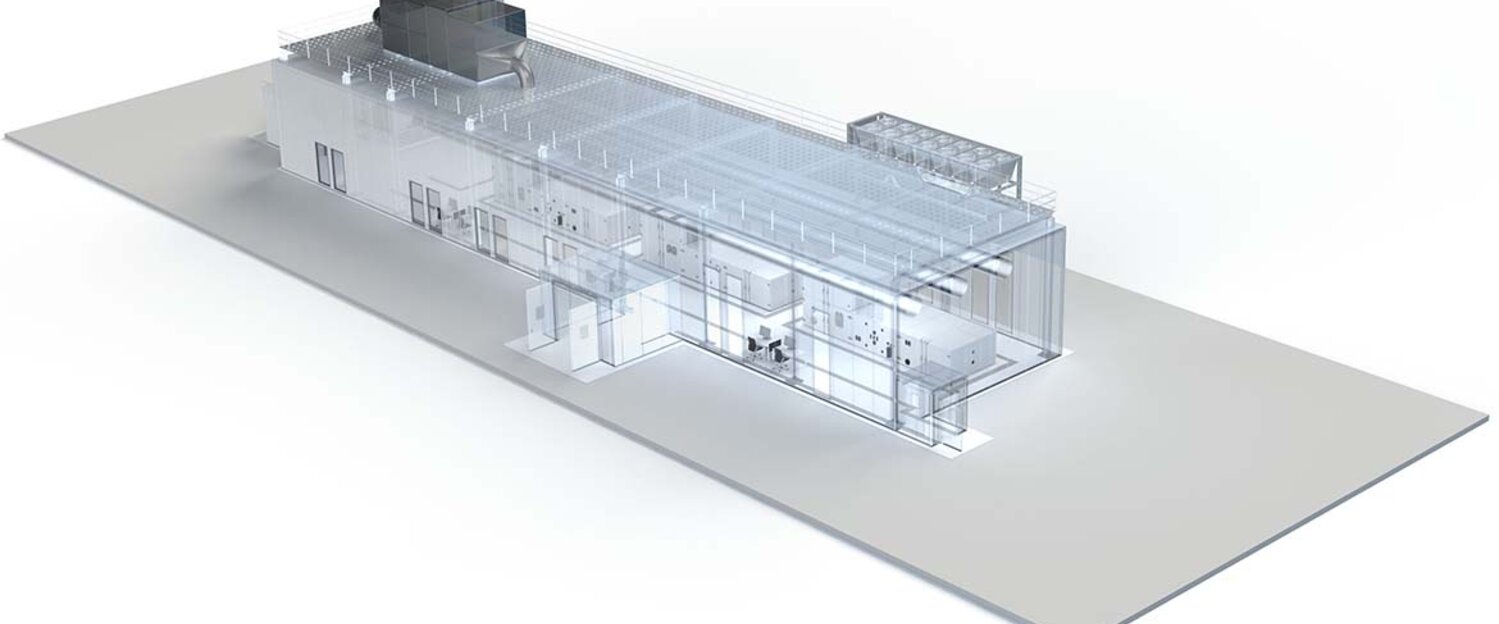Fraunhofer-Gesellschaft has set up the Fraunhofer FFB in Münster as part of the "Research Production Battery Cell - FoFeBat" project. The new research facility has commissioned Weiss Klimatechnik to plan and build a cleanroom facility with extremely dry air in the first of the two buildings under construction. Weiss Klimatechnik successfully won the international tendering process thanks to its overall technical concept, energy-saving measures and price-performance ratio and was awarded the contract with a budget in the double-digit million range.
As climate change progresses and fossil fuels run out, the demand for alternative energy sources for electric vehicles, PV systems and other private and commercial applications is increasing. The Fraunhofer-Gesellschaft and its local partners are setting up the Fraunhofer Research Institution for Battery Cell Production FFB as part of the "FoFeBat" project funded by the German Federal Ministry of Education and Research and the state of North Rhine-Westphalia. The aim is to research and develop ways to optimise the production of lithium-ion batteries. To achieve this, the state of NRW is constructing two new buildings at the Hansa-Business Park in the Amelsbüren district of Münster for the use of the Fraunhofer FFB. The first building will be constructed in the course of this year. The production hall with an appropriately designed drying room will form a central component of the building. Weiss Klimatechnik came out on top in the international tendering process.
Producing extremely dry conditions in an energy-efficient way
Lithium-ion batteries and other sustainable energy storage systems require extremely dry and clean conditions during research and production. To ensure this, a system for air drying must be used. The tender process gave Weiss Klimatechnik the technical scope to develop an innovative and unique solution. The interdisciplinary team consisted of specialists in air-conditioning technology, cleanroom technology and environmental simulation. The developed solution not only fulfils every climatic requirement, but also scores highly in terms of energy efficiency. This is important because air drying by adsorption is an extremely energy-intensive process. By combining various measures involving fresh air treatment, regeneration air treatment and heat recovery, it was possible to reduce the energy requirement by up to 20% compared to a more conservatively planned system.
Key technical data of the system
The 3,000 m2 research facility includes around 1,500 m2 of clean and dry room space as well as airlocks and equipment areas. In the drying rooms, a residual water content of less than 0.001g/kgTrl (grams of water per kg of air) is required. Lithium has an extremely strong reaction with water that releases explosive hydrogen and even average humidity can cause exothermic reactions. As a result, certain areas of the facility must be run with extremely dry air. Explosion protection measures must be taken into account for process exhaust air systems. "We are pleased that we were once again able to show how versatile and effective we are. As a development partner in the field of battery production and a specialist in automotive technologies, we were able to acquire another flagship project," explains Peter Manolopoulos, Managing Director of Weiss Technik.

